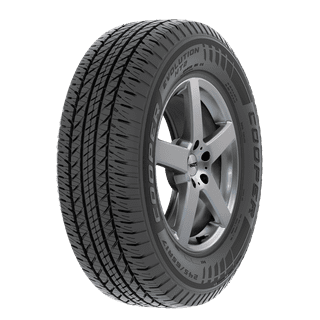Discover Top-Quality Tires Morris IL: Pick the very best for Your Vehicle
Tire Solution: Comprehending Tire Pressure Tracking Systems
Comprehending Tire Stress Tracking Systems (TPMS) is an essential aspect of keeping ideal lorry efficiency and safety and security when driving. With developments in automobile innovation, TPMS has become a common feature in modern cars, providing real-time information on tire stress degrees. Digging deeper right into the intricacies of TPMS, one can discover the various elements that compose this system and the significance of each in making sure precise tracking. From direct to indirect TPMS systems, the landscape of tire pressure surveillance is diverse, each with its special set of considerations and benefits. Keep tuned to decipher the intricacies of TPMS, from maintenance ideas to the undeniable advantages of keeping your tires correctly inflated. tire shop morris.

Relevance of TPMS
The importance of Tire Pressure Monitoring Solutions (TPMS) exists in their ability to improve car safety and performance through real-time tracking of tire pressure degrees. Preserving the right tire stress is essential for ensuring ideal handling, stopping, and general safety and security of a vehicle. TPMS gives chauffeurs with prompt responses on any type of overinflated or underinflated tires, enabling for timely adjustments to be made.
Components of TPMS
Consisting of different crucial elements, a Tire Pressure Tracking System (TPMS) operates as an innovative safety and security attribute in contemporary cars. The main parts of a TPMS consist of sensing units, a control component, and a caution sign. Sensing units are commonly located in the tire shutoff stem or attached to the wheel setting up, where they measure tire pressure and transmit information to the control component. If it spots considerably reduced pressure in any of the tires, the control component procedures this details and sets off a caution. The caution sign, usually an icon on the dashboard, signals the motorist to examine the damaged tire or tires. Some progressed TPMS designs additionally show the real tire pressure analyses for each and every tire, providing drivers with real-time information to make sure optimum tire efficiency and safety and security. By monitoring tire stress continually, TPMS helps stop mishaps, reduces tire wear, and boosts fuel effectiveness, making it a vital element for automobile security and performance.
Kinds of TPMS

On the other hand, indirect TPMS depends on the automobile's wheel rate sensors to monitor tire stress. This system finds underinflation by contrasting the rotational rates of the wheels. Indirect TPMS is much less costly than straight TPMS, as it utilizes existing sensors within the lorry.
While straight TPMS supplies a lot more exact readings, indirect TPMS is easier in style and usually needs much less maintenance. Both systems have their restrictions and benefits, and the selection between them usually depends upon factors such as cost, vehicle make, and individual choice. Comprehending the distinctions between these 2 kinds of TPMS can help automobile proprietors make informed choices concerning tire upkeep and safety.
TPMS Maintenance Tips
Conduct regular checks on the tire stress degrees and contrast them with the TPMS readings to ensure they are consistent. During tire rotation or replacement, make certain that the TPMS elements are dealt with carefully to prevent any prospective damages. If read here the TPMS alerting light illuminates on the control panel, resolve the issue promptly by checking the tire stress and the total system for any mistakes.
Advantages of Proper Tire Stress
Preserving appropriate tire pressure, as emphasized in TPMS Upkeep Tips, is important for reaping the various advantages connected with optimal tire stress degrees. One of the primary advantages of preserving the appropriate tire pressure is boosted fuel performance. When tires are appropriately inflated, there is less rolling resistance, leading to much better gas economy. Additionally, proper tire pressure ensures even tire wear, prolonging the life-span of the tires and promoting more secure driving conditions. With the right tire stress, cars likewise have much better handling and traction, specifically in damaging weather. This can improve general driving performance and security for the vehicle driver and passengers. Preserving optimal tire pressure can add to a smoother and extra comfortable trip by lowering resonances and noise created by underinflated tires. To conclude, the advantages of proper tire stress surpass simply tire durability; they encompass improved gas efficiency, boosted safety, far better lorry performance, and general driving comfort.
Final Thought
Finally, understanding tire stress surveillance systems (TPMS) is crucial for preserving optimum tire stress and guaranteeing lorry security. By identifying the significance of TPMS, being acquainted with its parts, understanding the different kinds offered, adhering to appropriate maintenance ideas, and understanding the advantages of keeping correct tire stress, chauffeurs can boost their driving experience and lengthen the lifespan of their tires. Correct tire pressure is vital to reliable and secure car procedure.
